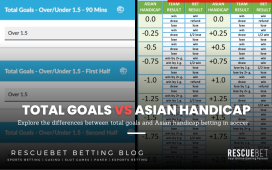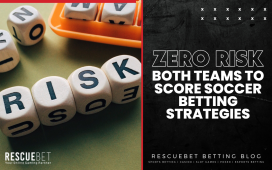Casino games such as blackjack involve an element of statistical skill. Essentially, a punter has the highest probability of winning by playing the game statistically and based on chance. Knowing when to split, double, hit, stand, and understand betting limits can give a punter an edge over a regular bettor at an online casino.
2023 Casino Blackjack Strategies
The best casino blackjack betting strategies for 2023 include when to split, double, hit or stand, the probability of winning, what to do on sweet 16, and betting limits.
1. When To Split
A punter can split the cards into two independent hands by placing another wager for the new split hand. Splitting cards is allowed only when a punter has two cards of the same number, such as two As, two 10s, two 7s, etc. However, a punter shouldn’t always split a hand because the opportunity presents itself. Some indicators are profitable to break, while others could put a punter in a difficult position. A punter should choose to split two Aces and two 8s irrespective of the house’s cards. If the house has less than 8, the punter can also split two 2s, two 3s, and two 7s. Ideally, a punter shouldn’t split two 9s, two 10s, or two face cards because a punter makes a firm hand into a risky one.
2. When To Double
It’s important to know when to double a wager in a game of blackjack. The rules for doubling mean the player is issued just one more card and doubles their stake simultaneously. A punter has the best probability of winning a double wager if the punter’s total is 10 in the first card/cards and the dealer’s total is less than 10. Doubling is a risky strategy for a punter who uses it inefficiently. Alternatively, a punter can make more profitable wagers on select rounds, with all the other bands evenly split between the house and the punter. Doubling on a number less than ten can result in the punter falling short of 21, and doubling on a number higher than 21 can result in the player going bust. In such a situation, a punter loses double the amount of a regular wager.
3. When To Hit And Stand
A punter needs to consider the cards they have plus the house’s cards to assume the next card dealt (whether high or low). A punter should stand on a total of 17 or higher because taking another card can easily result in the punter losing the round by going over 21. Essentially, a punter that can estimate probability on the go has a unique edge in a game of 21. Hitting or standing is based on the likelihood of winning, the cards dealt, the cards in the deck, and the probability of pulling a high or low number.
4. Betting Limits
Most online casinos and traditional casino houses set betting limits based on the type of table, type of customer, the risk exposure of the house, and other wagering caveats. Betting limits help the house manage risk, while high betting limits enable punters to make higher bets in each round of blackjack.
5. Sweet 16
Hitting a 16 can be confusing because it seems like a low number, but not low enough, and a high number, but not high enough. Shooting on a 16 can result in a player going bust, and not hitting a 16 can result in the dealer getting 17 or higher. Ideally, a punter should hit on a hard 16 if the dealer already has a card higher than seven on the table. A single face card (10 or higher) for the house will result in the loss for a punter. Additionally, if a punter already has a high card, the number of high cards in the deck is reduced, and the probability of the punter pulling a high card is slightly reduced. A punter should stand on a soft 16 if the house draws anything below 7 in the first hand. If the house marks a low card, they will have to hit again and could go bust. If the house draws a high card, the worst is a draw.
























